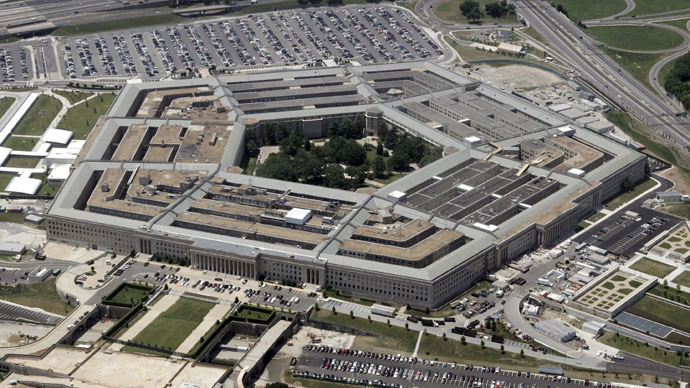New US military strategy: ‘Russia, China - threat to unipolar domination fantasy’

The Pentagon’s new military strategy proposes that Russia is a major US adversary, that there might be a war between the two countries, and that the US is losing its military technology supremacy, says Brian Becker from the anti-war Answer Coalition.
The Pentagon has released a new National Military Strategy listing of the greatest threats to the US. It includes states such as Russia, Iran and North Korea, and groups, particularly ‘violent extremist organizations’ (VEO) such as Islamic State and the Taliban.
RT:The United States does have a track record of entering conflicts without international approval. So judging by this new strategy should we expect more of the same?
Brian Becker: I think the new strategy is emblematic of what is going on in the past and as you’ve mentioned the US, when it can, gets UN or international acquiescence for what is essentially a US military operation, but if that support is lacking as it was in Iraq or in the Libya campaign the US just does it anyway. Certainly you can see that in Syria. So what we have is a situation - if you step back - the US violates international law routinely; it says always that it’s the great upholder of international law. But I think when you look at this new report what’s most outstanding is that compared to 2011 (it’s a quadrennial report) where Russia was barely mentioned, now the US government postulates 1) that Russia is a major adversary, 2) that there is a possibility of a major interstate war with a major power meaning Russia and 3) the US is losing its supremacy in military technology, signaling as it did in the 1950s a new arms race. And I think that’s what this report shows.
RT:The document concedes that "some of our comparative military advantage has begun to erode" - how do you think the US will try to claw back this advantage?
READ MORE: Pentagon’s new military strategy calls for preserving US dominion of the world
BB: I don’t think there is a loss of advantage; I think that this is usually a political signal largely for domestic public consumption in the US. Americans are being told that there is no money for hospitals, schools and many other vitally needed social programs, but suddenly we will have a clarion call that the US must catch up and must not let its adversaries – Russia or China – become superior to the US. This is precisely what triggered the advanced arms race in the 1950s. So I think the language is political, it shows the US is a defensive party, it’s a possible victim of aggression, it must not allow itself to become the victim of aggression and it can only deter it by adding more money to the arms budget. It signals that. But also we see a new generation of nuclear weapons being built and a new deployment strategy of military forces especially in the Arctic and that’s the challenge Russia and to a lesser degree China and I think this [report] shows where this is really moving.
RT:Why are Russia and China mentioned when the Middle East is in chaos?
BB: The US realizes that its dream of a unipolar world, the dream that started to become an operational doctrine for the US following the collapse of the Soviet Union in 1991, that that dream has turned into an impossible goal, that in fact Russia is back on its feet, it’s asserting its own interests. China is growing, it’s trying to grow peacefully and rise peacefully and become a medium range power. But the US sees that Russia, China, Iran and other countries in the world including South Africa, Brazil and India are unwilling to be just victims of the US hegemony, that they are asserting the wrong national interests, and so I think the US sees that now as a threat to its fantasy of unipolar domination following the collapse of the USSR.
RT:The US apparently wants to "support China's rise" but also resist Beijing's efforts to expand its regional control. Aren't these two goals incompatible?
BB: They are not compatible. In fact if you look at what the US is doing, not what it says in this sort of carefully worded military doctrine, the pivot towards Asia is a pivot of containment. The new military strategy which is to take all the non-Chinese republics and nations of the Asia-Pacific region and forge them into a US-led military alliance can’t be perceived in China as anything but a great threat to Chinese national interest in China’s own backyard, in its own territory, in the East China Sea and South China Sea and right up to the Chinese border. So deeds here say a great deal more than words. I think it’s carefully worded, but clearly the Chinese know that the pivot towards Asia is a pivot against China and not with China.
The statements, views and opinions expressed in this column are solely those of the author and do not necessarily represent those of RT.
The statements, views and opinions expressed in this column are solely those of the author and do not necessarily represent those of RT.












